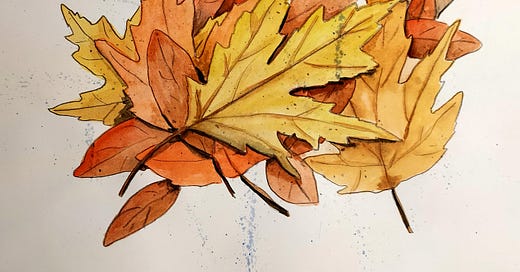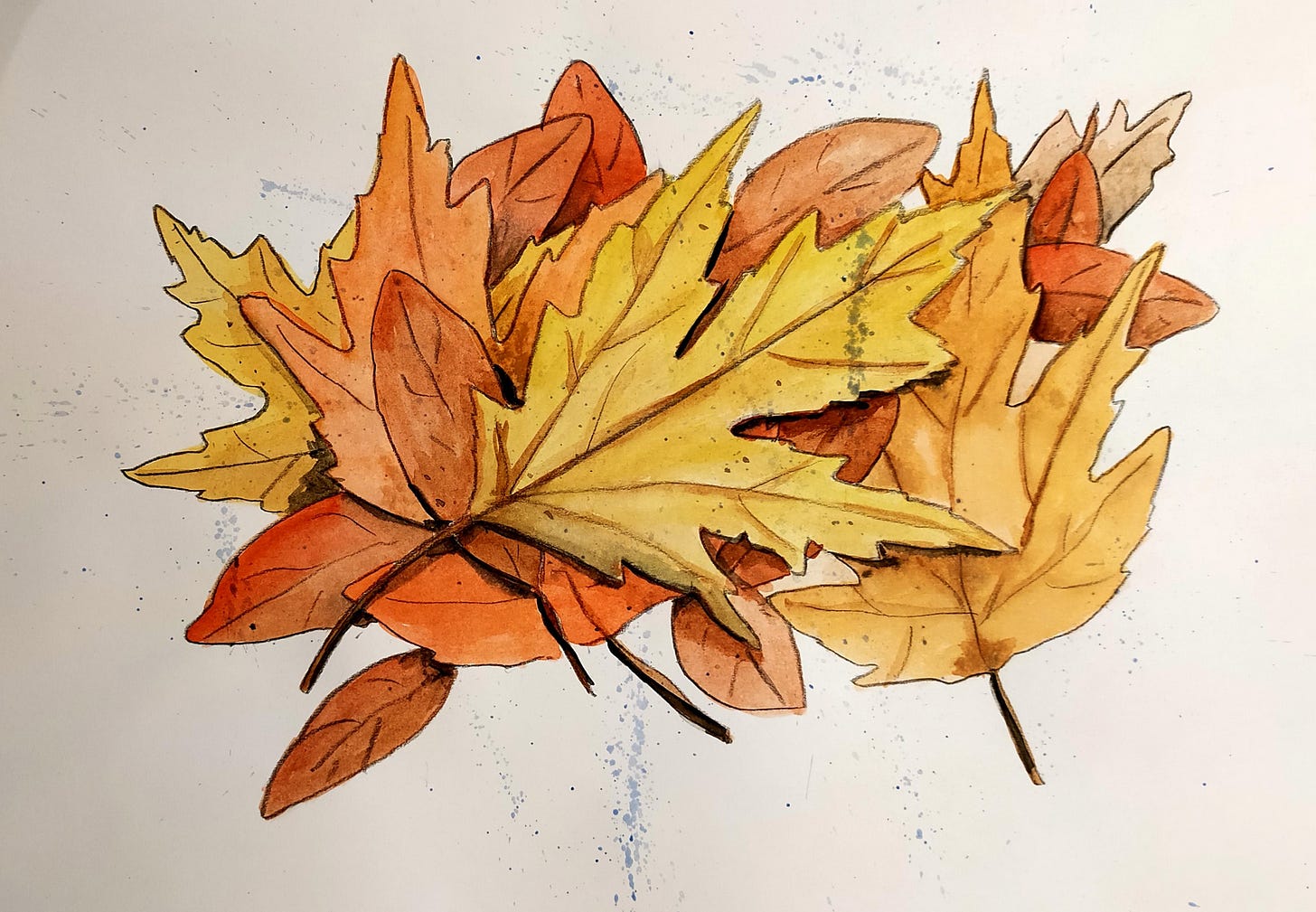Welcome to Mind Flexing, your fortnightly thought expedition to everywhere and anywhere. Strap on your boots (or put your feet up), take a deep breath, and let’s get flexing.
i.
Autumn has a sound. Unlike the frenetic surge of summer, the contemplative quiet of winter or the twinkling of spring, autumn bends, brushing against our ears and whispering, gently in adagio, the smell of roasting chestnuts. We breathe deeply when we hear autumn, an audible change guided by the sun. It sinks in the northern sky, casting a softer, more shimmering glow over the valley. Its temperature, too, softens (yet remains warm like the leaves of gold, tangerine and auburn that rustle above), pulling the seasonal breeze back and forth through the valley like a lullaby rocking us into a winter’s rest. The breeze gently muffles autumn’s sound as though it has been wrapped in a crocheted blanket. Life—all of it—relaxes, the river’s ramble slows, even the birds warble soporifically.
ii.
What was the first sound? In the bangless bang of creation (for they say sound cannot travel in space), was there sound trapped in an atomless silence? If it cannot be heard, is it a sound? Or did sound come later, outside the vacuum, perhaps within the winds of an atmospheric planetary object in a galaxy far, far away.
They say it’s not entirely true that there’s no sound in space; it’s just different, something that needs translation, a pressure wave rippling in hot gas, a sonification; an inaudible, yet haunting hum from within a black hole playing notes 57 octaves below middle C.
iii.
Fragments of history are captured in sound; things that can’t be seen, only heard, that break beyond the frame of a video screen, that resonate outside your eye’s field of view. Audio-visual artist Madelynne Cornish from the Bogong Centre for Sound Culture told me that if you take an audio recording of a forest before and after it’s thinned, you will hear how its abundance of life profoundly declines under a reduced canopy. A handful trees here and there and sonically, there are fewer birds and insects.
Let’s listen for the insects.
iv.
How would you draw a sound? If you were to send me the sound of a fairy wren using anything but that which is audible, what would you send me? A line on a page, a cross, a curve? a hieroglyph, a symbol? a quaver on a stave? I sit here, typing codes onto a screen—a script handed down generation by generation and taught to us one by one—each letter prescribed a sound or grouped into phonemes. And if there’s any doubt, a /fəʊniːm/. And you decode it instantly and hear these sounds sent from my head to yours as if I am speaking them myself, and you understand them because you know this code. You too were taught.
v.
Sometimes, only in moments of intense stillness—at night or at dawn, in the middle of the desert or atop a mountain far from towns and cities, when the air stands still and forgets to carry the night’s noises, and sound (having nowhere to go) settles in its place—during these moments of thick quietude is when I hear it. I hear the sound of the earth. It hums a primordial tune, deep and low, one long constant vibrating note. It comes from nowhere in particular, this soft and gentle sound, not north or south, above or below; it’s everywhere. And I block my ears to test if I am indeed insane, if this note comes from within my head, but confirming to myself it’s not my head, and noting there are no powerlines within my horizon, my instinct senses what it is, and it comforts me, this hum of the planet.
A note about my next essay
I’ve joined with a group of writers here on Substack who will be sharing some short stories about the ‘Future of Nature’ for Earth Day. So due to the timing, my next essay will be posted on Earth Day, April 22, just after the Easter break. It has been an interesting collaboration and there are some great stories in the works. All will be relealed soon…
Etymology Monday
The problem with Monday is if you mistake it for Thursday, one does not put out an Etymology post. So here’s one from the archive… it’s very saucy.
Thank you for Mind Flexing with me. If you enjoyed this essay, please subscribe, comment, click the ❤️ button, or share it with someone who would appreciate it. I’ll be back in a fortnight. Until then, keep 💪.







Wonderful Alia, thank you for this journey in sound, from the first ‘bangless big bang’ to now, where you are typing codes and I am reading them and imagining the sounds of your words. I too am thinking about sound and how we listen to and hear the world around us. I loved the thought of the Earth humming. Can’t wait to read your story, so exciting. Have a lovely Easter and happy writing. Kate :)
Don’t worry, your secret is safe with me.